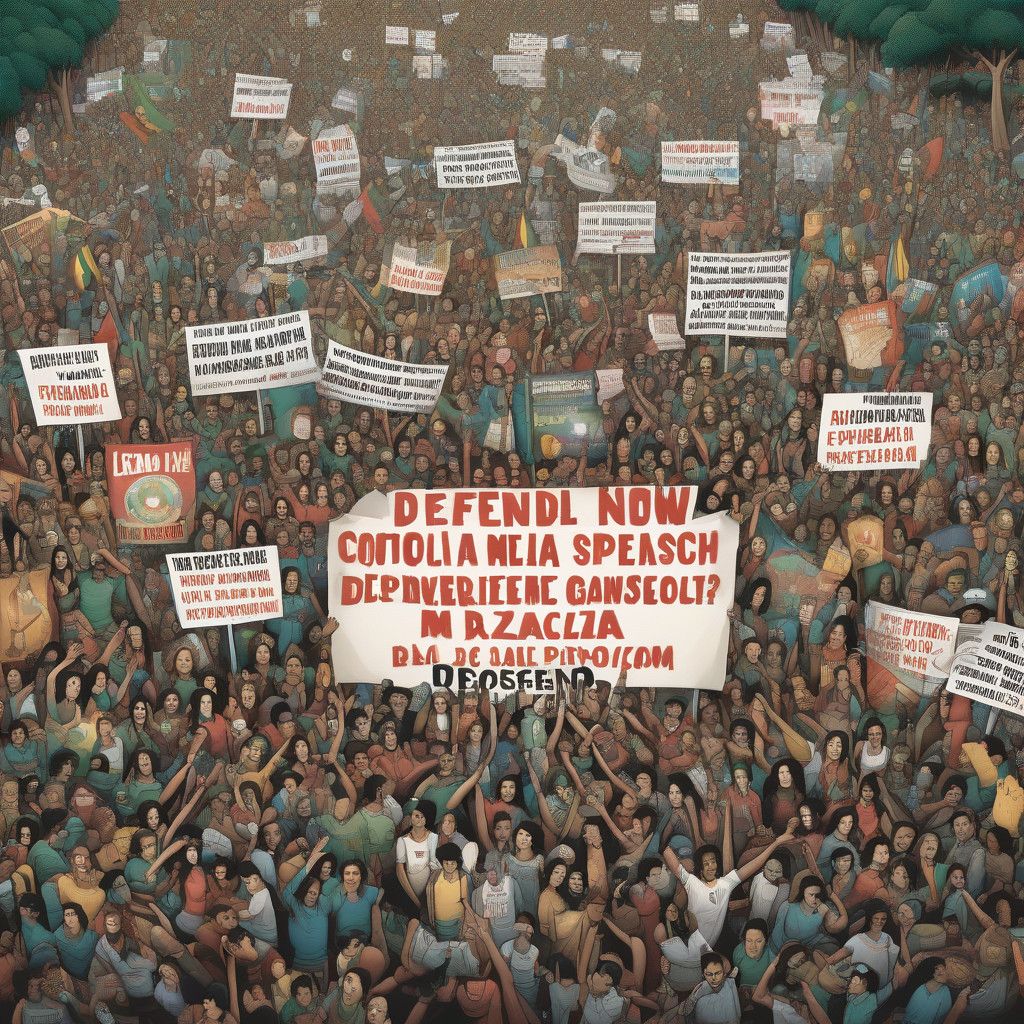The recent suspension of social media platform X, formerly known as Twitter, has ignited significant legal and political controversy in Brazil. This chaos emerged following a directive from Justice Alexandre de Moraes of the Brazilian Supreme Court, who ordered the platform to be blocked for allegedly spreading misinformation and failing to adhere to local legal requirements. This clash raises vital issues surrounding freedom of expression, regulation of social media, and the responsibilities of tech companies to comply with national laws.
At the heart of this legal matter is the conservative political party, Partido Novo, which has formally challenged Justice Moraes’ order. The party argues that the ban on X infringes upon citizens’ rights to free speech and is an excessive move by the judiciary to intervene in digital communications. There are grave implications not just for users of the platform but also for the wider digital landscape in Brazil. Moraes’ suspension of X has forced many to consider how much power should be granted to judges over social media, which plays an essential role in public discourse and the flow of information.
Justice Kassio Nunes Marques has taken significant steps by referring the case to the entire Supreme Court, underlining its importance for public and social order. However, he may issue an individual ruling on the matter before it is reviewed by all 11 justices. This decision is highly anticipated as it will set a precedent on the responsibilities and limitations of digital platforms in Brazil.
In the wake of this suspension, opinions within the Brazilian public are divided. Polls indicate that a slight majority endorse Moraes’ decision, recognizing the need to combat misinformation and uphold the rule of law. Conversely, prominent figures like Elon Musk, the owner of X, have vehemently opposed the ruling, accusing Moraes of authoritarianism. Musk’s vehement criticism went as far as labeling the judge a “dictator,” particularly emphasizing the court’s actions concerning freezing assets linked to his satellite company, Starlink. This controversial move was made as a precaution to cover potential fines stemming from the case, raising further eyebrows about the political implications and effects on international businesses operating within Brazil.
President Luiz Inacio Lula da Silva has thrown his support behind the suspension, highlighting the necessity for tech companies to abide by local regulations. This political backing reflects a broader agenda to ensure that technology firms operate in compliance with national laws while considering the impact on freedom of speech and expression. The Brazilian government is thus placed in a precarious position of balancing the enforcement of local laws with the potential violation of individual rights.
The implications of this upheaval extend beyond Brazil’s borders. Many global observers and stakeholders in the tech industry are keenly monitoring the situation. Several countries are grappling with similar dilemmas about regulating social media and controlling the flow of information online. The Brazilian case could set a key precedent influencing future legislation and judicial actions worldwide, shaping how governments engage with digital platforms.
In the digital age, where social media platforms serve as significant conduits for news and personal expression, the stakes are notably high. The rise of misinformation and hate speech has prompted calls for stricter regulations. However, blurring the lines between regulation and censorship remains a contentious subject. Thus, the Brazilian Supreme Court’s ruling not only has the potential to affect the future of X but also to speak to broader global trends regarding governance and the digital citizen’s rights.
Amid this turmoil, the necessity for a balanced approach remains paramount. While curbing misinformation is essential, the means of doing so must ensure that individual freedoms are not compromised, and platforms are not subjected to arbitrary demands. The legal and political circumstances surrounding the suspension of X are a classic example of the greater struggle for control over digital narratives and the role of judiciary in our evolving digital society.
As Brazil grapples with these pressing issues, the lessons learned here could echo around the world, prompting other nations to examine their own legal frameworks governing the digital landscape. Without careful navigational strategy, the outcomes could redefine how digital platforms operate within different jurisdictions, potentially triggering an era of increased scrutiny and control.












